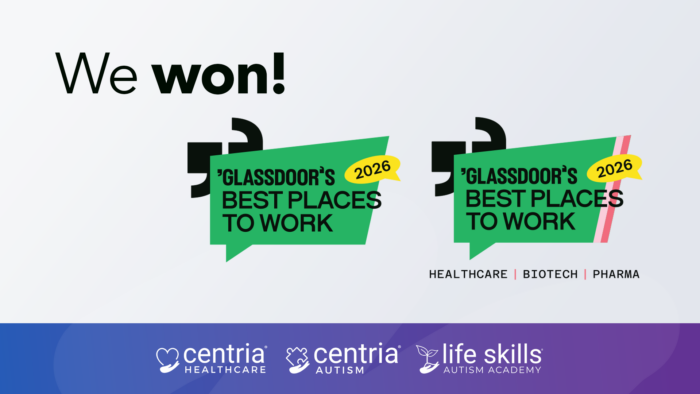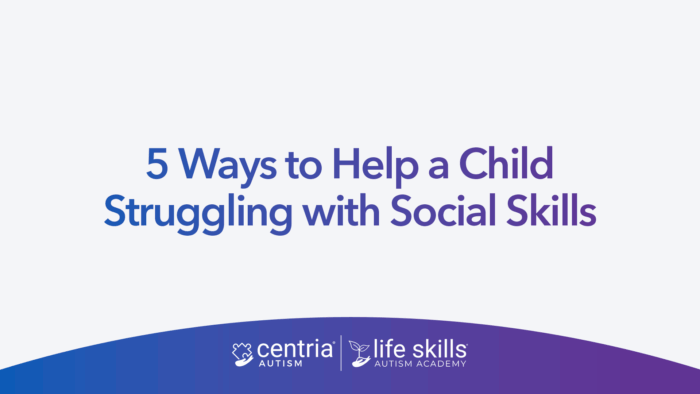Applied Behavior Analysis (ABA) therapy is an evidence-based approach that helps children build meaningful skills, reduce barriers to learning, and increase independence. Research consistently shows that when families actively participate in ABA therapy at home, progress is stronger, longer-lasting, and more meaningful (Koegel et al., 2014).
At Centria, we are dedicated to providing compassionate, trauma-informed, and assent-based ABA care, which essentially means therapy that is kind, safe, and respectful—supporting children in ways that build trust and honor their comfort and choice. We view families as essential partners in supporting each child’s growth while honoring their dignity, strengths, and unique needs.
Why Family Involvement in ABA Therapy Matters
When families are engaged in their child’s ABA therapy, everything changes. Skills taught in sessions don’t just stay in the clinic or with the therapist. They carry over into the real places that matter most– home, school and the community. When parents are trained in therapeutic techniques, children are more likely to generalize skills across real-life situations, leading to better outcomes (Schreibman et al., 2015).
Family involvement in ABA not only supports skill development but also promotes emotional well-being. When parents are engaged, therapy is more than just learning new skills; it becomes part of creating a safe, supportive environment where children feel voices are heard and respected (Rogers & Dawson, 2010). ABA therapy, then, is not something done to a child—it is developed with the child and family, making treatment meaningful, collaborative, and effective.
Assent-Based ABA and Emotional Safety
For children to learn and thrive, they must feel safe, respected, and understood. Assent-based ABA therapy respects the child’s voice, whether spoken or communicated through body language. When a child disengages or says “no,” it is important to listen and adjust. Emotional safety is just as important. When children are overwhelmed, forcing demands can increase stress, while pausing, co-regulating, and prioritizing connection builds trust.
Families can support assent and emotional safety at home by:
- Respecting boundaries and taking breaks
- Offering choices to support autonomy
- Seeking consent before activities
- Matching expectations to the child’s readiness
- Communicating calmly and patiently during moments of overwhelm
- Valuing connection over compliance
This dignity-centered, trauma-informed approach not only prevents retraumatization but also fosters resilience, confidence, and long-term well-being (SAMHSA, 2014).
Reinforcement and Motivation in ABA Therapy
Research shows that natural reinforcement in everyday contexts strengthens learning and promotes emotional connection (Carr et al., 2002); however, this is often misunderstood. Rewarding a child is not as important as promoting confidence and celebrating hard work. You can meaningfully reward actions by identifying your child’s true motivators.
Examples of meaningful reinforcement at home may include:
- Praise or encouragement (“Great job!”)
- High fives or hugs
- Playtime or movement breaks
- Shared family routines
It helps to remember that what motivates one child may not motivate another. Rather than assuming, try noticing what your child naturally enjoys and use those moments to reinforce effort. Even small choices, like letting your child pick the game you play after a task, can build confidence and make learning feel positive.
Creating a Supportive ABA Home Environment
A home does not need to resemble a therapy center to support progress. Instead, what matters most is that children feel safe and secure. Some strategies include:
- Designating a calm space such as a play corner or quiet area.
- Using visual routines to increase predictability and independence.
- Incorporating sensory-friendly tools like noise-canceling headphones or fidget toys.
- Respecting autonomy by offering choices and prioritizing comfort.
Flexibility is key. When children are given options and their comfort is prioritized, they are more likely to participate willingly. This approach reduces stress, upholds their autonomy, and reflects a trauma-informed perspective where progress is built on connection and consent (SAMHSA, 2014).
Practicing ABA Skills During Daily Routines
Learning doesn’t only happen in therapy sessions. Everyday routines offer powerful opportunities to practice skills naturally:
- Taking turns while playing board games
- Practicing flexibility when plans change
- Naming emotions while reading bedtime stories
These child-led, playful interactions reduce stress and encourage generalization of skills into real-world situations (Rogers & Dawson, 2010).
Caring For Yourself While Caring For Your Child
Caring for a child in ABA therapy can feel overwhelming, and many parents worry about “getting it right.” The truth is, you don’t need to be perfect–small, consistent efforts make a big difference over time. Remember that:
- Progress is not always linear
- Taking breaks and setting boundaries is healthy
- Self-care fosters more compassionate caregiving
Your presence, patience, and love are among the most powerful tools in your child’s development (Carr et al., 2002).
Conclusion: Building a Future Through Family-Centered ABA Therapy
ABA therapy is not about quick fixes—it’s about creating a life aligned with your child’s strengths, interests, and values. By prioritizing emotional safety, autonomy, and family involvement, children can thrive in meaningful, lasting ways.
At Centria, we partner with families to provide compassionate ABA therapy at home. Together, we can build a future rooted in respect, joy, and lasting success.
References
Carr, E. G., Dunlap, G., Horner, R. H., Koegel, R. L., Turnbull, A. P., Sailor, W., Anderson, J. L., Albin, R. W., Koegel, L. K., & Fox, L. (2002). Positive behavior support: Evolution of an applied science. Journal of Positive Behavior Interventions, 4(1), 4–16. https://doi.org/10.1177/109830070200400102
Koegel, L. K., Ashbaugh, K., & Koegel, R. L. (2014). Pivotal response treatment for autism spectrum disorders. Paul H. Brookes Publishing Co.
Rogers, S. J., & Dawson, G. (2010). Early start Denver model for young children with autism: Promoting language, learning, and engagement. Guilford Press.
Schreibman, L., Dawson, G., Stahmer, A. C., Landa, R., Rogers, S. J., McGee, G. G., Kasari, C., Ingersoll, B., Kaiser, A. P., Bruinsma, Y., Wetherby, A., & Halladay, A. (2015). Naturalistic developmental behavioral interventions: Empirically validated treatments for autism spectrum disorder. Journal of Autism and Developmental Disorders, 45(8), 2411–2428. https://doi.org/10.1007/s10803-015-2407-8
Substance Abuse and Mental Health Services Administration. (2014). SAMHSA’s concept of trauma and guidance for a trauma-informed approach (HHS Publication No. SMA 14-4884). https://ncsacw.samhsa.gov/userfiles/files/SAMHSA_Trauma.pdf
About the Author
Alexandra (“Alex”) Zachary is a Board Certified Behavior Analyst (BCBA) and Licensed Behavior Analyst (LBA) in Arizona with nearly a decade of experience supporting neurodivergent individuals and their families. She currently serves as an Area Director of Clinical Services with Centria Healthcare, where she leads the clinical center teams across Arizona in creating meaningful, compassionate care experiences.
A graduate of Teachers College at Columbia University, Alex brings a well-rounded background from in-home, school, and center-based services, blending clinical expertise with a heart for advocacy. She is especially passionate about assent-based practices that honor each individual’s voice and independence. Whether coaching clinicians, partnering with families, or shaping programs, Alex is driven by a simple goal: helping people thrive with dignity and joy.






